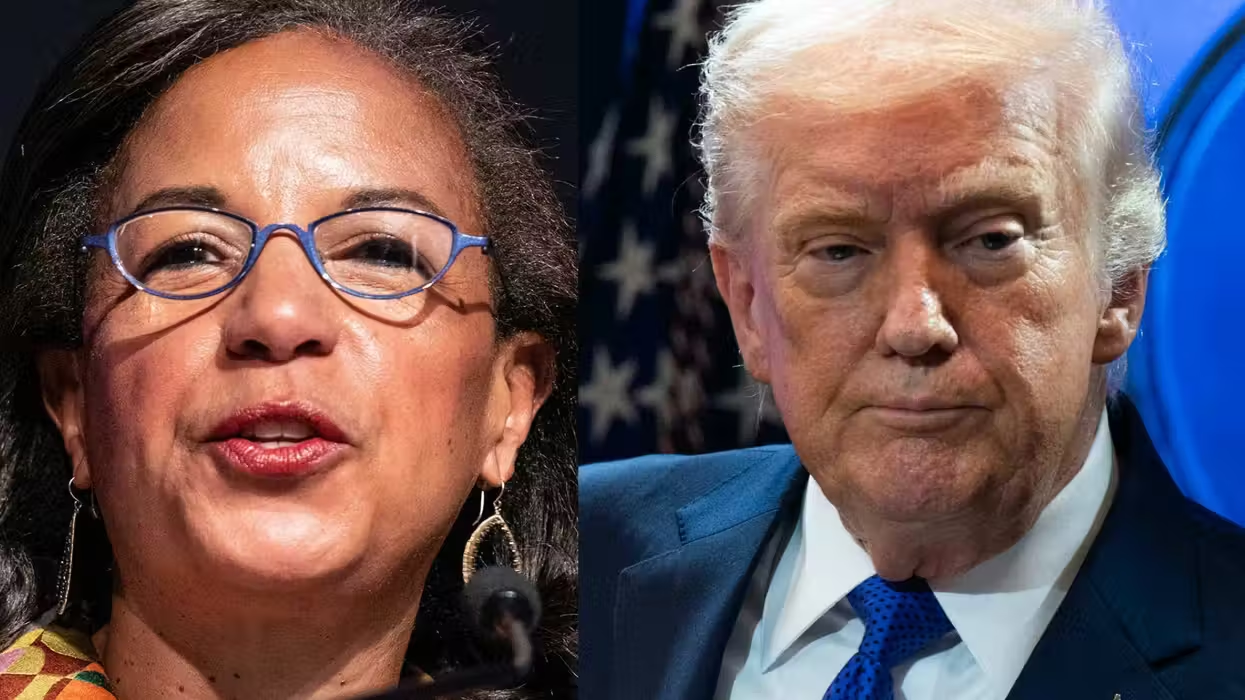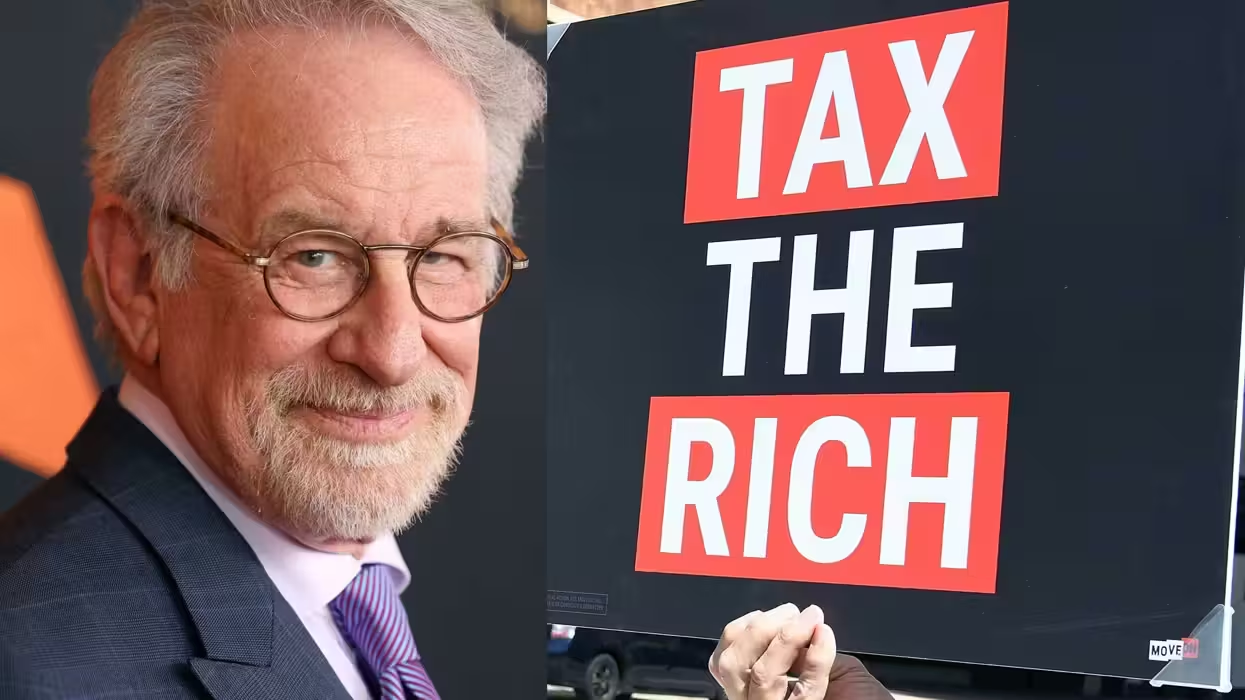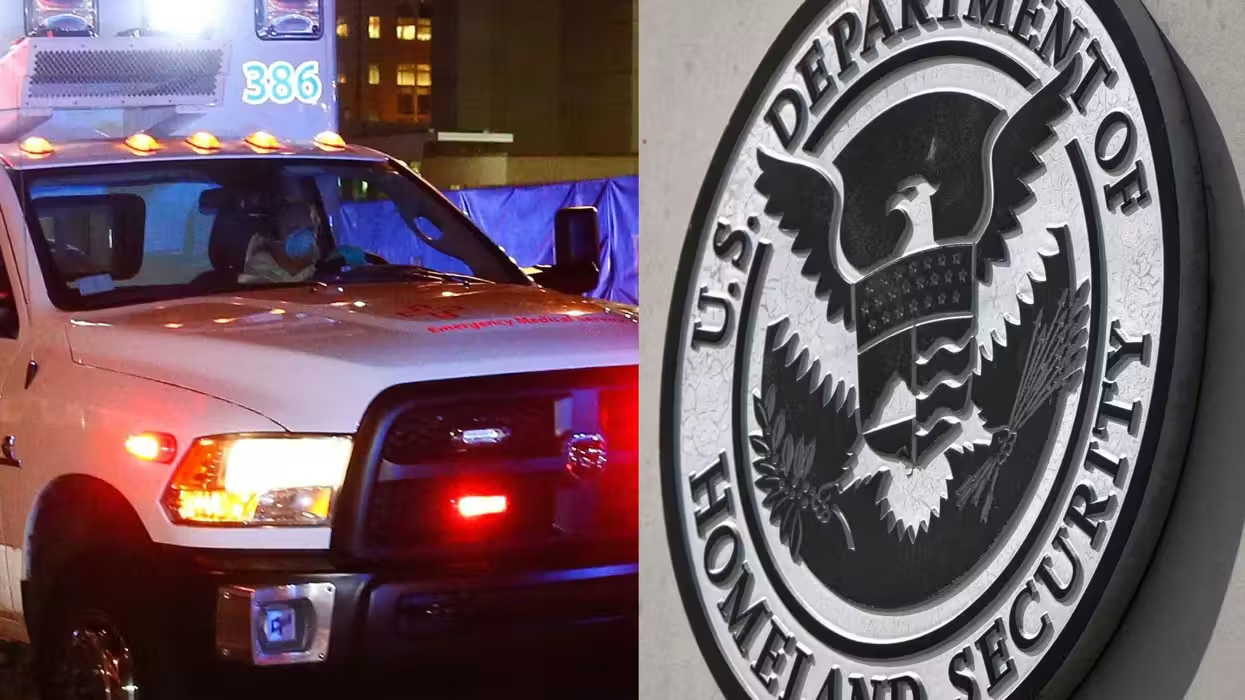What if the Chinese government developed a hundred-year plan based on ancient warring strategies to counter American hegemony and ultimately overtake her and the entire world?
That is the thesis at the heart of a chilling new book by a member of Washington's foreign policy and national security establishment for over four decades, who is perhaps America's foremost expert on China.
Michael Pillsbury's new "The Hundred-Year Marathon: China's Secret Strategy to Replace America as the Global Superpower" reflects a mea culpa of sorts, with Pillsbury -- who served in administrations from Nixon through Obama and posts in the Defense Department and four U.S. Senate Committees, supporting ever-closer ties to China in the diplomatic, economic and military realms -- arguing that he and the rest of Washington have gotten things completely wrong with respect to China.
Based on his extensive interactions with Chinese officials, examinations of internal Chinese military documents and other materials and a sober examination of the facts, Pillsbury argues in "The Hundred-Year Marathon" that America has been duped into aiding China's "peaceful rise," and we need to wake up and take concrete steps to counter the patient Chinese foe if we are to neutralize their long-term plan to overtake us by 2049.
Pillsbury begins his book with five false assumptions, all of which are enabling China's plan to continue apace, which read very similarly to America's dealings with Russia and the Islamic world:
1. Engagement brings complete cooperation
[sharequote align="center"]In short, China has failed to meet nearly all of our rosy expectations.[/sharequote]
"For four decades now, my colleagues and I believed that "engagement" with the Chinese would induce China to cooperate with the West on a wide range of policy problems. It hasn't. Trade and technology were supposed to lead to a convergence of Chinese and Western views on questions of regional and global order. They haven't. In short, China has failed to meet nearly all of our rosy expectations.
From thwarting reconstruction efforts and economic development in war-ravaged Afghanistan to offering lifelines to embattled anti-Western governments in Sudan and North Korea, China has opposed the actions and goals of the U.S. government. Indeed, China is building its own relationships with America's allies and enemies that contradict any peaceful or productive intentions of Beijing."
2. China is on the road to democracy
...[T]he idea that the seeds of democracy have been sown at the village level became the conventional wisdom among many China watchers in America. With patience but no pressure from the United States, the argument went, local elections in Chinese cities and towns would eventually be followed by regional and national elections.
Like many working in the U.S. government, I had heard the democracy story for decades. I read about it in countless books and articles. I believed in it. I wanted to believe in it.
My faith was first shaken in China in 1997, when I was among those encouraged to visit China to witness the emergence of "democratic" elections in a village near the industrial town of Dongguan. While visiting, I had a chance to talk in mandarin with the candidates and see how the elections actually worked. The unwritten rules of the game soon became clear: the candidates were allowed no public assemblies, no television ads, and no campaign posters. They were not allowed to criticize any policy implemented by the Communist Party, nor were they free to criticize their opponents on any issue. There would be no American-style debates over taxes or spending or the country's future. The only thing a candidate could do was to compare his personal qualities to those of his opponent. Violations of these rules were treated as crimes.
One candidate I spoke to asked me if this was how the democratic elections worked in the West. I didn't have the heart to tell him the truth. China's hawks had already done away with true elections."
3. China, the fragile flower
 According to Want China Times, this is what the DF-41 looks like -- though TheBlaze couldn't independently confirm the photo shows the latest version of the ICBM.
According to Want China Times, this is what the DF-41 looks like -- though TheBlaze couldn't independently confirm the photo shows the latest version of the ICBM.
"In what appeared to be a forthright exchange of views with Chinese scholars [during a 1996 U.S. delegation to China of which Pillsbury was a part], we were told that China was in serious economic and political peril--and that the potential for collapse loomed large. These distinguished scholars pointed to China's serious environmental problems, restless ethnic minorities, and incompetence and corrupt government leaders--as well as to those leaders' inability to carry out necessary reforms. Considering the well-known secretiveness of the Chinese Politburo, I was astonished by these scholars' candor and startled by their predictions, which only underscored my support for efforts to provide U.S. aid to a supposedly fragile China.
I later learned that the Chinese were escorting other groups of American academics, business leaders, and policy experts on these purportedly "exclusive" visits, where they too received an identical message about China's coming decline. Many of them repeated these "revelations" in articles, books, and commentaries back in the United States. For example, a study published by the influential RAND Corporation listed ten factors that would cause China's slowdown or even collapse in the imminent future. This trend would continue to characterize the China debate for years afterward.
...For decades, we have seen such arguments in op-ed pieces, news stories, and books that have dominated our national discourse about China. Yet the hard fact is that China's already robust GDP is predicted to continue to row by at least 7 or 8 percent, thereby surpassing that of the United States by 2018 at the earliest, according to economists from the International Monetary Fund, the Organisations for Economic Cooperation and Development, and the United Nations. Unfortunately, China policy experts like me were so wedded to the idea of the "coming collapse of China" that few of us believed these forecasts. While we worried about China's woes, its economy more than doubled."
4. China wants to be--and is--just like us
In our hubris, Americans love to believe that the aspiration of every other country is to be just like the United States. In recent years, this has governed our approach to Iraq and Afghanistan. We cling to the same mentality with China.
In the 1940s, an effort was funded by the U.S. government to understand the Chinese mind-set. This culminated in several studies, including one in which 150 Chinese emigrants in New York's Chinatown were shown Rorshach inkblot cards...One conclusion that emerged was that the Chinese did not view strategy the same way Americans did. Whereas Americans tended to favor direct action, those of Chinese ethnic origin were found to favor the indirect over the direct, ambiguity and deception over clarity and transparency. Another conclusion was that Chinese literature and writings on strategy prized deception.
[instory-book ISBN="9781627790109"]
Two decades later, Nathan Leites, who was renowned for his psycho-analytical cultural studies, observed:
Chinese literature on strategy from Sun Tzu through Mao Tse-tung has emphasized deception more than many military doctrines. Chinese deception is oriented mainly toward inducing the enemy to act inexpediently and less toward protecting the integrity of one's own plans. In other cultures, particularly Western, deception is used primarily with the intention of ensuring that one's own forces can realize their maximum striking potential...the prevalent payoff of deception for the Chinese is that one does not have to use one's own forces....Chinese tend to shroud their means in secrecy and not publicize the day-to-day activities of those in power; for surprise and deception are assumed to be vital.
Chinese literature often highlights the role of deception, and the need for the "sage"--that is, the wise statesman--to penetrate the deception around him to find the hidden signals in reality. There is an emphasis in many classic Chinese stories of heroes using cunning to manipulate others. The heroes of many popular novels, films and television programs are those who prove adept at concealing their motives, misleading enemies, and veiling their true intentions until the end. Those artists considered the most skilled convey deceptive signs that require a reader's effort and intelligence to decipher and understand before the plot reaches a conclusion.
The results of the original 1940s study--the idea that an ethno-national group viewed the world differently--proved controversial and politically incorrect, and they were never published. The sole existing copy rests quietly in the Library of Congress. It would not be until 2000 that I learned from Chinese generals that the study's conclusions were essentially correct. The Chinese value highly the importance of deception stratagems. They are proud of their cultural uniqueness. Two hawkish generals formed a "Chinese Strategic Culture Promotion Society" to broadcast this view. Their national media influence has risen since I first met them twenty years ago. My colleagues mistakenly ignored them until some of their recommendations recently became Chinese policy."
5. China's hawks are weak
"In the late 1990s, during the Clinton administration, I was tasked by the Department of Defense and the CIA to conduct an unprecedented examination of China's capacity to deceive the United States and its actions to date along those lines. Relying on intelligence assets, unpublished documents, interviews with Chinese dissidents and scholars, and Chinese writings that I read in the original Mandarin script, I began to see the secrets that the Chinese had been hiding--in plain sight--from people like me.
As I assembled the clues contradicting the conventional narrative about China that I had always believed, I starting [sic] connecting the pieces of an alternative narrative of roughly the past four decades. Over time, I discovered proposals by Chinese hawks (ying pai) to the Chinese leadership to mislead and manipulate American policymakers to obtain intelligence and military, technological, and economic assistance. I learned that these hawks had been advising Chinese leaders, beginning with Mao Zedong, to avenge a century of humiliation and aspired to replace the United States as the economic, military, and political leader of the world by the year 2049 (the one hundredth anniversary of the Communist Revolution). This plan became known as "the Hundred-Year Marathon." It is a plan that has been implemented by the Communist Party leadership from the beginning of its relationship with the United States. The goal is to avenge or "wipe clean" (xi xue) past foreign humiliations. Then China will set up a world order that will be fair to China, a world without American global supremacy, and revise the U.S.-dominated economic and geopolitical world order founded at Bretton Woods and San Francisco at the end of World War II. The hawks assess that China can only succeed in this project through deception, or at least by denial of any frightening plans.
When I presented my findings on the Chinese hawks' recommendation about China's ambitions and deception strategy, many U.S. intelligence analysts and officials greeted them initially with disbelief.
...[T]he more benign view of China held by those derisively called "panda huggers"--a term I wore as a badge of honor for decades...requires suppressing reams of countervailing evidence and dismissing the many hard-line nationalist voices within China, from the highest levels of politics and military institutions to the conventional wisdom of the masses, as "fringe" and "marginal."
...Dismissing Chinese nationalism as out of the mainstream is what most Western experts on China have done for decades. The bias of wishful thinking has created a blind spot to what is likely to emerge as America's thorniest national security challenge in the next twenty-five years. There are moderates and hard-liners in China, doves and hawks, who are locked in a fierce debate over the shape of China's future within the halls of government in Beijing and in frequent conferences. But increasingly, the more hard-line and nationalist worldview is winning out and indeed has far more influence in the inner circle of China's new president, Xi Jinping. The hawks' government-sponsored newspaper Global Times has become the second or third most popular source of news, and its editor, Xu Xijin, makes clear how China's hawks see the moderate doves: they are 'the cancer cells that will lead to the demise of China.'"
Note: The link to the book in this post will give you an option to elect to donate a percentage of the proceeds from the sale to a charity of your choice. Mercury One, the charity founded by TheBlaze’s Glenn Beck, is one of the options. Donations to Mercury One go towards efforts such as disaster relief, support for education, support for Israel and support for veterans and our military. You can read more about Amazon Smile and Mercury One here.
–
Follow Ben Weingarten (@bhweingarten) and TheBlazeBooks on Twitter and Facebook.
You can find all of our Blaze Books interviews on Soundcloud and Stitcher, and subscribe to our podcast automatically via iTunes.

 According to Want China Times, this is what the DF-41 looks like -- though TheBlaze couldn't independently confirm the photo shows the latest version of the ICBM.
According to Want China Times, this is what the DF-41 looks like -- though TheBlaze couldn't independently confirm the photo shows the latest version of the ICBM.






